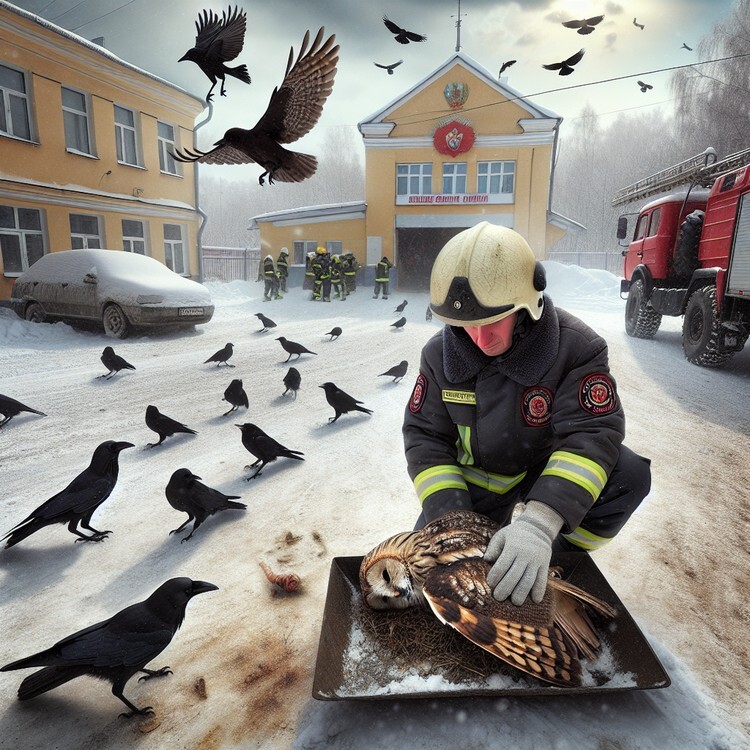Seagulls are moving to cities because they are losing their homes in nature. Scientists say we should learn to live with them. Gulls are having a hard time finding food in the wild because there are not enough fish and some are getting sick. So, they come to cities to find food, but this sometimes causes problems with people. Experts think we should not be mad at them but understand they are smart birds and try to get along. We can help by using big trash cans that close tightly and not leaving food outside.
Gulls are not as many as before and people are worried. In the UK, all the main types of gulls are not doing well. Scientists counted them in winter to see how many there are and where they stay. They will use this information to help protect gulls. Some people think there are more gulls living on buildings now, but we are not sure. Experts say gulls are interesting animals and we should like them. They suggest we can live together peacefully if we learn about gulls and help keep our cities clean. More counting of gulls will happen later to help them more.
Original news source: Seagulls ‘charismatic’ not ‘criminal’, say scientists (BBC)
🎧 Listen:
Slow
Normal
Fast
📖 Vocabulary:
| 1 | seagulls | Birds that like to be near water |
| 2 | cities | Big places where lots of people live and work |
| 3 | nature | The outdoors where plants and animals live |
| 4 | scientists | People who study things and try to learn about them |
| 5 | problems | When things are not going right or are hard to deal with |
| 6 | smart | When someone or something can think and solve things well |
| 7 | trash | The stuff we throw away because we don’t need it anymore |
| 8 | protect | To keep someone or something safe from getting hurt |
| 9 | buildings | Tall structures where people can live or work |
| 10 | peacefully | In a calm and quiet way, without fighting |
Group or Classroom Activities
Warm-up Activities:
– Charades
Instructions: Divide the class into small groups. Give each group a list of words related to the article (e.g. seagull, city, food, nature, trash can). One student from each group will act out a word without speaking, while the other group members try to guess the word. The group that guesses the most words correctly wins.
– News Summary
Instructions: Have the students read the article individually or in pairs. After they have read it, ask each student to write a one-sentence summary of the article. Then, have them share their summaries with a partner and discuss any differences or similarities. Finally, ask a few students to share their summaries with the whole class.
– Vocabulary Pictionary
Instructions: Divide the class into pairs. Give each pair a list of vocabulary words from the article (e.g. seagull, city, food, nature, trash can). One student from each pair will choose a word and draw a picture to represent it, while the other student tries to guess the word. The pair that guesses the most words correctly wins.
– Headline Creation
Instructions: Divide the class into small groups. Give each group a headline template (e.g. “Seagulls Invade Cities in Search of Food”). Ask each group to create a headline related to the article using the template. After they have created their headlines, ask each group to present their headline to the class and explain why they chose it.
– Opinion Poll
Instructions: Divide the class into pairs. Ask each pair to discuss their opinion on the topic of seagulls moving to cities. Do they think it is a problem or not? After they have discussed their opinions, ask each pair to conduct a mini poll by asking other pairs their opinion. Finally, ask a few pairs to share the results of their poll with the whole class.
🤔 Comprehension Questions:
1. Why are seagulls moving to cities?
2. What is happening to the fish in the wild?
3. Why do seagulls sometimes cause problems with people in cities?
4. How can we help seagulls in cities?
5. Are there as many seagulls as before?
6. What are scientists doing to help protect seagulls?
7. How can we live peacefully with seagulls in cities?
Go to answers ⇩
🎧✍️ Listen and Fill in the Gaps:
Seagulls are moving to cities because they are losing their homes in nature. Scientists say we should learn to live with them. (1)______ are (2)______ a hard time finding food in the wild because there are not enough fish and some are getting sick. So, they come to cities to find food, but this sometimes causes problems with (3)______. Experts think we should not be mad at them but understand they are smart (4)______ and try to get along. We can help by using big trash cans that close tightly and not leaving food outside.
Gulls are not as many as before and people are worried. In the UK, all the main (5)______ of gulls are not doing well. Scientists counted them in winter to see how (6)______ there are and where they stay. They will use this information to help protect gulls. Some people think there are more gulls living on (7)______ now, but we are not sure. (8)______ say gulls are interesting animals and we should like them. They suggest we can live together peacefully if we learn about gulls and help keep our cities clean. More counting of gulls will happen later to help them more.
Go to answers ⇩
💬 Discussion Questions:
Students can ask a partner these questions, or discuss them as a group.
1. What are seagulls?
2. How do seagulls feel when they can’t find enough food in nature?
3. Do you think it’s a good idea for seagulls to come to cities to find food? Why or why not?
4. How do people sometimes feel about seagulls coming to cities?
5. Do you think we should be mad at seagulls for coming to cities? Why or why not?
6. Why do you think seagulls come to cities to find food?
7. How can we help seagulls find food in cities?
8. Are there more or fewer seagulls now than before? Why do you think that is?
9. Do you like seagulls? Why or why not?
10. Do you think it’s important to protect seagulls? Why or why not?
11. How can we live peacefully with seagulls in cities?
12. What do you think scientists can learn from counting seagulls?
Individual Activities
📖💭 Vocabulary Meanings:
Match each word to its meaning.
Words:
1. seagulls
2. cities
3. nature
4. scientists
5. problems
6. smart
7. trash
8. protect
9. buildings
10. peacefully
Meanings:
(A) When things are not going right or are hard to deal with
(B) The stuff we throw away because we don’t need it anymore
(C) People who study things and try to learn about them
(D) Tall structures where people can live or work
(E) When someone or something can think and solve things well
(F) In a calm and quiet way, without fighting
(G) Big places where lots of people live and work
(H) Birds that like to be near water
(I) To keep someone or something safe from getting hurt
(J) The outdoors where plants and animals live
Go to answers ⇩
🔡 Multiple Choice Questions:
1. Why are seagulls moving to cities?
(a) They are losing their homes in nature.
(b) They want to be closer to people.
(c) They don’t like the food in the wild.
(d) They are tired of flying.
2. Why are seagulls having a hard time finding food in the wild?
(a) They are not good at hunting.
(b) There are not enough fish.
(c) They are scared of other animals.
(d) They are too lazy to look for food.
3. What should we do to help seagulls in cities?
(a) Chase them away when we see them.
(b) Leave food outside for them.
(c) Use big trash cans that close tightly.
(d) Build more nests for them.
4. Why are people worried about seagulls?
(a) They are too noisy.
(b) There are not as many as before.
(c) They are stealing food from people.
(d) They are building nests on buildings.
5. What did scientists do to count the number of gulls in the UK?
(a) Counted them in summer.
(b) Counted them in the ocean.
(c) Counted them in the zoo.
(d) Counted them in winter.
6. What will scientists do with the information about gulls?
(a) Use it to help protect gulls.
(b) Use it to build more buildings.
(c) Use it to scare away gulls.
(d) Use it to catch gulls.
7. What do experts say about gulls?
(a) They are scary animals.
(b) They are dangerous animals.
(c) They are boring animals.
(d) They are interesting animals.
8. How can we live peacefully with gulls?
(a) Chase them away whenever we see them.
(b) Feed them lots of food.
(c) Learn about gulls and keep our cities clean.
(d) Build more nests for them.
Go to answers ⇩
🕵️ True or False Questions:
1. Seagulls are moving to cities because they have homes in nature still.
2. In the UK, all the main types of seagulls are doing well.
3. Seagulls are having trouble finding food in the wild because there aren’t enough fish.
4. We should be mad at seagulls, not understand that they are smart birds.
5. We cannot help seagulls by using small trash cans that don’t close tightly and leaving food outside.
6. Scientists say we should be friends with seagulls and learn to live with them.
7. Scientists are counting seagulls in the winter to see how many there are and where they stay.
8. Sometimes seagulls cause problems for people when they come to cities to find food.
Go to answers ⇩
📝 Write a Summary:
Write a summary of this news article in two sentences.
Check your writing now with the best free AI for English writing!
Writing Questions:
Answer the following questions. Write as much as you can for each answer.
Check your answers with our free English writing assistant!
1. Why are seagulls moving to cities?
2. Why are seagulls having a hard time finding food in the wild?
3. What can people do to help the seagulls?
4. Why are people worried about the number of seagulls?
5. How can we live peacefully with seagulls in our cities?
✅ Answers
🤔✅ Comprehension Question Answers:
1. Why are seagulls moving to cities?
Seagulls are moving to cities because they are losing their homes in nature.
2. What is happening to the fish in the wild?
There are not enough fish in the wild, so some fish are getting sick and seagulls can’t find enough food.
3. Why do seagulls sometimes cause problems with people in cities?
Seagulls sometimes cause problems with people in cities because they try to find food and can make a mess or take food from people.
4. How can we help seagulls in cities?
We can help seagulls in cities by using big trash cans that close tightly and not leaving food outside.
5. Are there as many seagulls as before?
No, there are not as many seagulls as before. They are becoming fewer in number.
6. What are scientists doing to help protect seagulls?
Scientists are counting seagulls in winter to see how many there are and where they stay. They will use this information to help protect seagulls.
7. How can we live peacefully with seagulls in cities?
We can live peacefully with seagulls in cities by learning about them and keeping our cities clean.
Go back to questions ⇧
🎧✍️✅ Listen and Fill in the Gaps Answers:
(1) Gulls
(2) having
(3) people
(4) birds
(5) types
(6) many
(7) buildings
(8) Experts
Go back to questions ⇧
📖💭✅ Vocabulary Meanings Answers:
1. seagulls
Answer: (H) Birds that like to be near water
2. cities
Answer: (G) Big places where lots of people live and work
3. nature
Answer: (J) The outdoors where plants and animals live
4. scientists
Answer: (C) People who study things and try to learn about them
5. problems
Answer: (A) When things are not going right or are hard to deal with
6. smart
Answer: (E) When someone or something can think and solve things well
7. trash
Answer: (B) The stuff we throw away because we don’t need it anymore
8. protect
Answer: (I) To keep someone or something safe from getting hurt
9. buildings
Answer: (D) Tall structures where people can live or work
10. peacefully
Answer: (F) In a calm and quiet way, without fighting
Go back to questions ⇧
🔡✅ Multiple Choice Answers:
1. Why are seagulls moving to cities?
Answer: (a) They are losing their homes in nature.
2. Why are seagulls having a hard time finding food in the wild?
Answer: (b) There are not enough fish.
3. What should we do to help seagulls in cities?
Answer: (c) Use big trash cans that close tightly.
4. Why are people worried about seagulls?
Answer: (b) There are not as many as before.
5. What did scientists do to count the number of gulls in the UK?
Answer: (d) Counted them in winter.
6. What will scientists do with the information about gulls?
Answer: (a) Use it to help protect gulls.
7. What do experts say about gulls?
Answer: (d) They are interesting animals.
8. How can we live peacefully with gulls?
Answer: (c) Learn about gulls and keep our cities clean.
Go back to questions ⇧
🕵️✅ True or False Answers:
1. Seagulls are moving to cities because they have homes in nature still. (Answer: False)
2. In the UK, all the main types of seagulls are doing well. (Answer: False)
3. Seagulls are having trouble finding food in the wild because there aren’t enough fish. (Answer: True)
4. We should be mad at seagulls, not understand that they are smart birds. (Answer: False)
5. We cannot help seagulls by using small trash cans that don’t close tightly and leaving food outside. (Answer: False)
6. Scientists say we should be friends with seagulls and learn to live with them. (Answer: True)
7. Scientists are counting seagulls in the winter to see how many there are and where they stay. (Answer: True)
8. Sometimes seagulls cause problems for people when they come to cities to find food. (Answer: True)
Go back to questions ⇧















